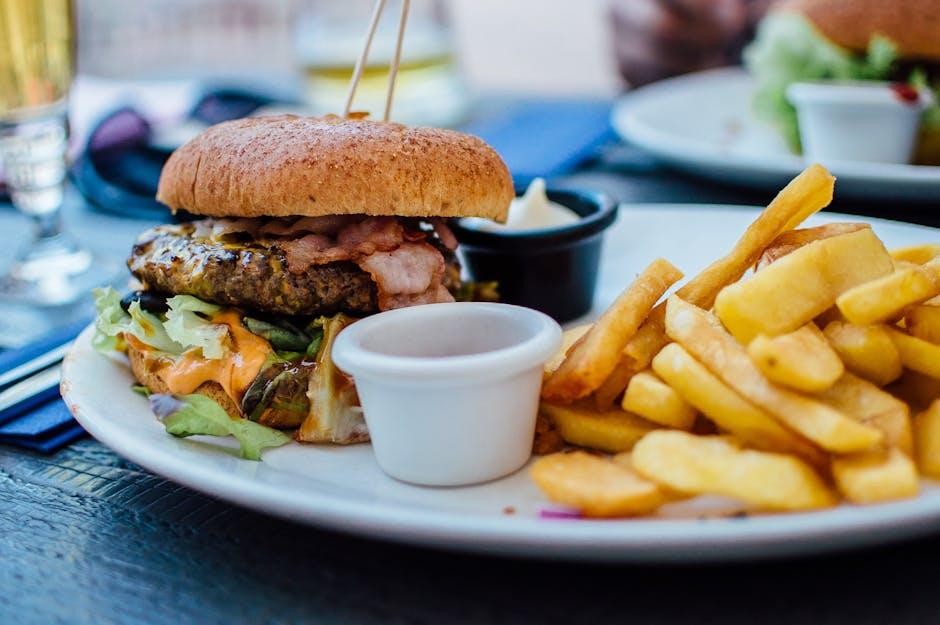In a world where the quest for eternal youth often leads to potions, creams, and cutting-edge technology, a simple, age-old practice is quietly gaining attention: fasting. As the sands of time slip through our fingers, scientists and wellness enthusiasts alike are turning their gaze toward this ancient ritual, pondering its potential to turn back the clock on aging. Could the key to longevity and rejuvenation lie not in what we consume, but in what we choose to abstain from? In this exploration, we delve into the fascinating intersection of biology and tradition, examining the evidence and theories that suggest fasting might just hold the secret to reversing the effects of time.
Exploring the Science Behind Fasting and Cellular Rejuvenation
In recent years, the scientific community has delved deep into the fascinating relationship between fasting and cellular rejuvenation, uncovering potential pathways through which fasting may influence aging. Autophagy, a process that translates to “self-eating,” is one of the key mechanisms activated during fasting. This biological process allows cells to remove damaged components and regenerate, enhancing their functionality and longevity. By periodically depriving the body of food, cells are prompted to enter a survival mode, optimizing their repair processes and potentially reducing the accumulation of age-related damage.
- Stem Cell Activation: Fasting has been shown to stimulate the production of stem cells, which are vital for regenerating tissues and maintaining overall cellular health.
- Hormesis: The mild stress fasting imposes on cells can lead to a stronger cellular response, making them more resilient to future stressors.
- Reduction of Inflammation: By reducing inflammatory markers, fasting may decrease the risk of chronic diseases that are commonly associated with aging.
These insights suggest that fasting might not only be a tool for weight management but also a potential strategy for promoting a longer, healthier life. However, the exact mechanisms and long-term effects are still under investigation, prompting an ongoing dialogue in the scientific community about its implications for human health and longevity.
Understanding the Role of Autophagy in Anti-Aging Benefits
The intricate process of autophagy plays a pivotal role in cellular maintenance and renewal, acting as a natural mechanism by which cells break down and recycle their components. This biological process is essential for removing damaged cellular components, thereby maintaining cellular health and function. Research suggests that autophagy can be significantly enhanced by fasting, potentially contributing to anti-aging benefits. Fasting triggers autophagy, promoting the removal of dysfunctional proteins and organelles, which may otherwise accumulate and contribute to the aging process.
By stimulating autophagy, fasting could help in delaying age-related diseases and preserving cellular youthfulness. The potential anti-aging benefits of fasting through autophagy include:
- Enhanced cellular repair: Promotes the regeneration of cells and tissues.
- Reduction in inflammation: Helps mitigate chronic inflammation, a common factor in aging.
- Improved metabolic function: Supports better regulation of metabolism, often disrupted with age.
- Neuroprotection: May protect against neurodegenerative diseases by clearing damaged neurons.

Balancing Fasting Methods for Optimal Health Outcomes
Finding the sweet spot between various fasting methods can be a game-changer for those looking to harness its potential benefits, including possible anti-aging effects. Intermittent fasting, time-restricted eating, and alternate-day fasting each offer unique pathways to rejuvenation. However, the key lies in harmonizing these methods to suit individual health needs and lifestyle choices. While intermittent fasting might suit someone with a hectic schedule, alternate-day fasting may offer deeper cellular repair for others. By listening to one’s body and adjusting fasting windows accordingly, individuals can optimize their health without compromising daily functionality.
Consider the following strategies to maintain balance in your fasting routine:
- Flexibility: Adapt fasting windows based on personal energy levels and daily commitments.
- Nutrient Density: Ensure meals during eating periods are rich in essential nutrients to support overall health.
- Hydration: Prioritize water intake to maintain hydration, especially during fasting periods.
- Mindful Monitoring: Keep track of physical and mental responses to fasting to make necessary adjustments.

Expert Recommendations for Safe and Effective Fasting Practices
To harness the potential benefits of fasting, it is crucial to adhere to expert guidance. Here are some key recommendations to ensure your fasting experience is both safe and effective:
- Consult a Healthcare Professional: Before embarking on any fasting regimen, it’s important to seek advice from a healthcare provider, especially if you have underlying health conditions.
- Stay Hydrated: Adequate hydration is essential during fasting. Opt for water, herbal teas, or clear broths to maintain fluid balance.
- Start Gradually: If you’re new to fasting, begin with shorter durations and gradually increase as your body adapts.
- Listen to Your Body: Pay attention to signs of fatigue or discomfort, and be prepared to adjust your fasting schedule as needed.
- Nutrient-Dense Eating: Break your fast with meals rich in nutrients to replenish energy and support overall health.
By following these guidelines, you can maximize the potential anti-aging effects of fasting while minimizing risks. Remember, fasting is not a one-size-fits-all approach, and personalizing your plan can lead to more sustainable and beneficial outcomes.
Closing Remarks
In the grand tapestry of human existence, the quest for youth and longevity has been a constant thread woven through the ages. As we stand at the intersection of ancient wisdom and modern science, fasting emerges as a potential bridge between the two, whispering promises of renewal and vitality. While the jury is still out on whether fasting can indeed turn back the hands of time, its potential benefits for health and well-being are undeniable. As research continues to unravel the mysteries of fasting and aging, we find ourselves at the dawn of a new understanding—one where the simple act of restraint may unlock the secrets of a longer, healthier life. Until then, we watch, we wait, and perhaps, we fast.


































